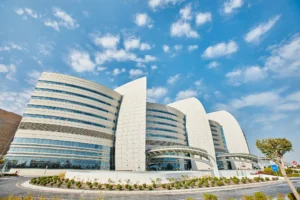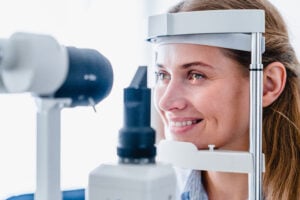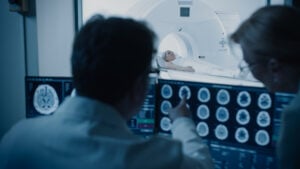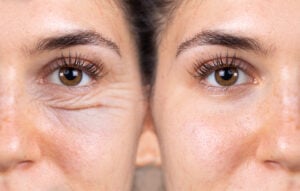Since the first pioneering organ transplants were carried out in the 1950s and 1960s, replacing one damaged or failing organ in an otherwise healthy body has become a powerful means of prolonging life. As people survive to a greater age worldwide, the demand for transplants continues to grow. However, the limiting factor continues to be the availability of donors. Countries have different approaches to the donor problem, as seen in the number of patients waiting for a transplant or the length of wait.
For example, a patient needing a new kidney might have to wait five years for a donor in Hong Kong but a shorter time in a neighbouring country. Organ donations are generally sourced from healthy individuals who die in a hospital or live donors. In the first case, a brain-dead patient whose heart and other organs continue to function is ideal. Many such donors come, for example, from road accidents. In the second case, patients needing a replacement organ might find a relative to help. Live donation is possible for kidneys and livers but not lungs and hearts, which is why these are the most frequent transplants.
Ethics of Organ Transplant Tourism
Organ transplant medical tourism, involving patients traveling abroad for procedures, poses significant ethical challenges. However, mature health systems have implemented safeguards over the years to ensure transparency and ethical governance. Consequently, many international patients continue to seek organ transplants in countries like the United States.
The ethical concerns are around the exploitation of disadvantaged donors who, under financial duress, sell organs, breaching their dignity and risking their health. This commerce can erode voluntary donation structures both domestically and globally. Moreover, it fosters health inequality, as only affluent individuals can afford these journeys, leading to a system where financial capacity, not medical necessity, dictates organ transplant access. The absence of sustainable post-operative care for donor and recipient alike further jeopardizes long-term health prospects.
Donor rules differ by country. Countries like Austria operate under a presumed consent law, meaning individuals are automatically considered organ donors upon death unless they’ve opted out. This system aims to increase available organs legally and ethically, contrasting with the controversial organ markets elsewhere.
Kidney Transplant - International Waiting List
Kidney transplants are the most in-demand, accounting for over 60% of transplants worldwide. The fact that we have two kidneys simplifies the procedure from the point of view of both donor and receiver. A patient with failing kidneys can receive just one kidney, and a donor, often a family member, can donate one kidney and continue to have a normal life.
Chronic kidney disease can be associated with high blood pressure, diabetes and high cholesterol. Dialysis can be used to filter and purify the blood outside the box mechanically, but this involves connecting up to a dialysis machine for four hours, several times a week. Having a new kidney implanted provides a long-term solution. However, as with all major surgery, there are risks, and taking immunosuppressant drugs will be required.
| Country | Report Year | Deceased Donor | Live Donor | Total Transplants | Waiting Lists |
| United States | 2021 | 19519 | 5971 | 25490 | 88901 |
| United Arab Emirates | 2021 | 66 | 64 | 130 | N/A |
| India | 2021 | 1589 | 9834 | 11423 | N/A |
| Thailand | 2022 | 547 | 175 | 722 | 6417 |
| China | 2022 | 10187 | 2525 | 12712 | N/A |
| Hong Kong | 2022 | 45 | 11 | 56 | 2451 |
| Spain | 2022 | 3054 | 350 | 3404 | 6895 |
| United Kingdom | 2022 | 2338 | 854 | 3192 | 5352 |
Looking for an Organ Transplant abroad?
Liver Transplant - International Waiting List
The liver is essential for digesting food and ridding your body of toxic substances. Liver disease is frequently caused by excessive alcohol consumption, but obesity and hepatitis are also common causes. The liver is the only part of the body that can regenerate and regrow lost tissue. This means it is possible to replace part of a liver, making finding a donor simpler. A family member might share the left or right lobe of their liver with a loved one, and the donor liver will regrow to normal size. Similarly, the transplanted lobe will grow back, and both patient and donor can go on to lead normal lives.
Some patients have a genetic disorder that leads to liver malfunction. However, that liver can work effectively if transplanted into a person that carries the necessary gene, and transplanting a donated liver into the first patient can also introduce the missing gene. This double transplant is known as a domino transplant.
| Country | Report Year | Deceased Donor | DOMINO Liver Tx | Live Donor | Total Transplants | Waiting Lists |
| United States | 2021 | 8667 | 2 | 567 | 9236 | 10,625 |
| United Arab Emirates | 2021 | 36 | 0 | 10 | 46 | N/A |
| India | 2021 | 761 | 5 | 2957 | 3723 | N/A |
| Thailand | 2022 | 105 | 0 | 42 | 147 | 230 |
| China | 2022 | 5299 | 5 | 749 | 6053 | N/A |
| Hong Kong | 2022 | 17 | 0 | 12 | 66 | 80 |
| Spain | 2022 | 1154 | 0 | 5 | 1159 | 1641 |
| United Kingdom | 2022 | 890 | 0 | 32 | 922 | 656 |
Looking for an Organ Transplant abroad?
Lung Transplant - International Waiting List
Pulmonary disease, often caused by smoking, and cystic fibrosis are two of the main forms of advanced lung disease that a lung transplant might remedy. As we have two lungs, it is possible to replace just one lung. However, if a patient suffers from cystic fibrosis, both lungs must be replaced, as the infection would otherwise spread from the remaining lung to the new lung.
Whilst transplants from living donors are sometimes carried out, such a procedure is uncommon. A lung transplant involves complex surgery with a high risk of complications. Hence, life expectancy is not as long as after other transplant operations.
| Country | Report year | Total Transplants | Waiting Lists |
| United States | 2021 | 2569 | 960 |
| United Arab Emirates | 2021 | 0 | N/A |
| India | 2021 | 138 | N/A |
| Thailand | 2022 | 0 | 22 |
| China | 2022 | 798 | N/A |
| Hong Kong | 2022 | 7 | 13 |
| Spain | 2022 | 415 | 627 |
| United Kingdom | 2022 | 95 | 290 |
Heart Transplant - International Waiting List
Heart transplants are probably the least common transplants because live donation is impossible. We only have one heart. In addition, it requires complex and profoundly invasive surgery. Many incipient heart problems can be dealt with by lifestyle changes, stents, bypass operations and valve insertion, so a transplant is a last resort.
Nevertheless, heart disease is a common problem, particularly as people grow older, and there is a growing demand for transplants. The use of asystole or Donation after Circulatory Death (DCD) hearts will increase the number of available donors. Such hearts which had stopped beating were previously assumed to be damaged and not suitable for transplant. Still, new technology allows them to be reanimated and placed in a machine that pumps through blood and nutrients while being transported.
| Country | Report year | Total Transplants | Waiting Lists |
| United States | 2021 | 3863 | 3365 |
| United Arab Emirates | 2021 | 3 | N/A |
| India | 2021 | 250 | N/A |
| Thailand | 2022 | 31 | 38 |
| China | 2022 | 710 | N/A |
| Hong Kong | 2022 | 11 | 81 |
| Spain | 2022 | 311 | 495 |
| United Kingdom | 2022 | 202 | 303 |
Transplant data, except where otherwise specified, comes from the joint ONT-WHO Global Observatory on Donation and Transplantation, a collection of data prepared by a collaboration between the World Health Organisation (WHO) and the Spanish National Transplant Organisation (ONT).
Hong Kong waiting list information comes from the Hong Kong Organ Transplant Organisation (HKOTO).
Indian transplant data comes from the National and Tissue Transplant Organisation (NOTTO), Organ Donation and Transplantation Data.
UK waiting list data is from the NHS Blood and Transplant services.
China does not publish data on waiting lists, although times are said to be short, yet levels of donation are low.
Looking for an Organ Transplant abroad?
About MTM Global
MTM Global is a UK-based international healthcare consultancy and online travel agency specializing in premier health tourism.
For all corporate and media inquiries, click here.













